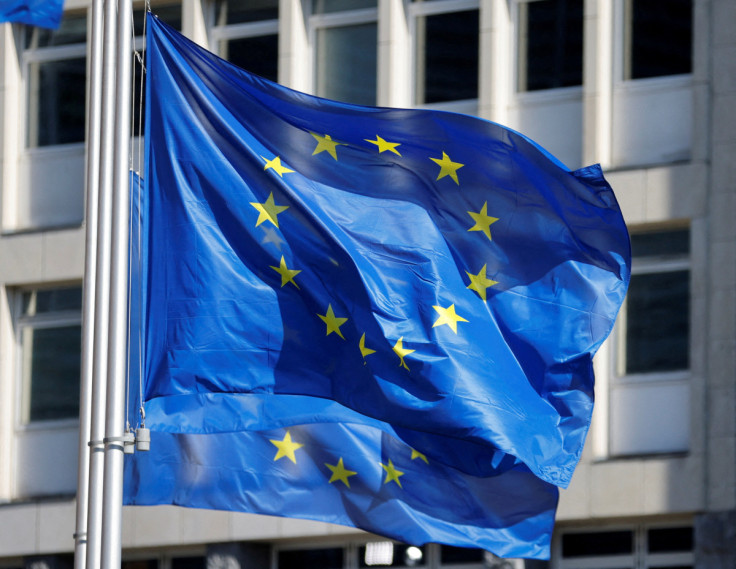EU Sanctions Policy Is Attracting Growing Controversy
Controversy Surrounds EU Sanctions on Wealthy Russians

EU sanctions against wealthy Russians and their relatives are attracting growing controversy in the EU. Questions have arisen over the universality of the general approach amid evidence of inappropriate restrictions. On April 10th, the European Court of Justice (ECJ) granted the lifting of sanctions imposed by the European Council against Russian Alfa-Bank shareholders Petr Aven and Mikhail Fridman.
"The General Court annulled the inclusion of Petr Aven and Mikhail Fridman on the lists of individuals subject to restrictive measures," the court's decision stated. According to the court's ruling, the grounds for including the businessmen on the lists were not sufficiently justified, and the EU Council did not provide additional evidence.
"The court upholds the demands of Petr Aven and Mikhail Fridman," the court declared.
"The court considers that none of the reasons set out in the initial sanction acts during the period from February 28th, 2022, to March 15, 2023, were sufficiently justified, and therefore, the inclusion of Aven and Fridman on the contested lists was not justified." Aven and Fridman are major shareholders of the Russian Alfa-Bank. Both men were placed on the EU restrictions after Russia invaded Ukraine in February 2022.
The EU's sanctions have affected nearly 2,000 individuals and entities following the adoption of the 13th package of sanctions in February. Regarding the extension of the acts, the court believes that the EU Council should have provided additional evidence compared to those it relied on in the primary acts.
In the court's opinion, "The General Court considers that none of the reasons set out in the initial acts is sufficiently substantiated and that the inclusion of Mr Aven and Mr Fridman on the lists at issue was unjustified. "As regards the maintaining acts, the General Court holds that the Council adduced no additional evidence compared to that on which it had relied in the initial acts."
As more sanctioned individuals challenge the EU's sanctions, it is becoming clear that in some cases, the restrictions were not adequately justified or the circumstances leading to the sanctions have changed. This is particularly true for restrictions against individuals without apparent connection to the Russian government or its policies.
Relatives of Russian businessmen have been, and continue to be, affected by sanctions.
Among them is the Serbian-Croatian wife of fertiliser magnate Andrei Melnichenko, who claims never to have lived in Russia. Also sanctioned is gynaecologist Gulbahor Ismailova, the sister of Russian-Uzbek billionaire Alisher Usmanov (sanctioned by the EU on the same day as Aven and Fridman), who resides and works in Uzbekistan.
British legal experts, including former UK Attorney General Lord Edward Garnier, have found that Ismailova never owned assets through trusts set up by Usmanov, as her original sanctions listing stated. She has reportedly waived her right to receive any benefit from the trusts in the future, meaning she remains on the sanctions list solely because of family ties.
"It is unlikely that the EU Council will not comply with the Court's decision (on Aven and Fridman) - I think their decision on Usmanov will not withstand the EU Court either," said Professor Vladislav Inozemtsev, a prominent and highly vocal critic of Vladimir Putin following the General Court's decision.
In 2023, the EU dropped restrictions against tech founder Arkady Volozh and Oleg Tinkov, founder of the digital Tinkoff Bank. Tinkov, a self-made billionaire from humble working-class roots, lost the bulk of his fortune due to the sanctions.
He was removed from the UK sanctions list soon after being delisted by the EU. The two businessmen were amongst the most vociferous critics of Russia's 2022 invasion of Ukraine.
Tinkov took steps to move his business out of Russia immediately after the invasion. At the time, he is reported as saying, "I'm taking the Tinkoff and La Datcha brands out of the country."
"They belong to my family: I don't want to besmirch them with the blood of Russian soldiers and the citizens of Ukraine. Ukraine will win because good always wins over evil— we were taught that at school," Tinkov said.
© Copyright IBTimes 2025. All rights reserved.





















